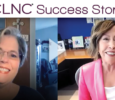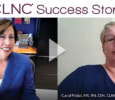As a Certified Legal Nurse Consultant you understand you wouldn’t have a CLNC® business without your attorney-clients. But do you also consider how the attorneys’ paralegals and assistants impact the growth of your CLNC business?
In this blog 5 Certified Legal Nurse Consultants discuss:
- Favorite strategies for developing a strong relationship with your attorney-clients’ support staff.
- Common mistakes CLNC consultants make in how they interact with paralegals and assistants.
- How developing professional relationships with paralegals and assistants has contributed to the growth of their CLNC business.
- Ways to retie the connection with attorneys through their paralegals and assistants.
- Comments you should avoid and how to strategically approach a paralegal or assistant when they’re wrong about a case or issue.
- How to manage difficult paralegals and assistants.
MARCIA BELL, RN, BSN, CAPA, CLNC
What are your favorite strategies for developing a strong professional relationship with your attorney-clients’ paralegals and assistants?
Prompt response to communication is one of my favorite strategies. For example, I work with paralegals frequently at a law firm where I organize and summarize the medical records. I work in the office a couple of times per month. When a paralegal sends an email asking when I can come in to organize records, I answer back as soon as possible and the same day at the very latest. When I propose a date, I always ask if that date works for them, so the paralegal can coordinate what works best. I show up on time. Other favorite strategies include saying thank you often, providing holiday gifts and providing breakfast or lunch to the whole law firm, not just the attorneys. One paralegal delivers the medical records to my car so I don’t have to pay for parking. She’s definitely on my holiday gift list.
What are some of the common mistakes you see legal nurse consultants make in how they interact with paralegals and assistants?
Not expressing appreciation and giving orders rather than asking for assistance. Another mistake is providing an awkward introduction to who they are, the CLNC services they provide and their unique selling position.
How has developing professional relationships with the paralegals and assistants contributed to the growth of your CLNC business?
When I am on a first name basis with the paralegals, it helps me get more cases. I also reach out to them and treat them like professionals, so they remember me and recommend me for the specific CLNC services the attorney needs. When the attorney is busy and doesn’t have time to ask for assistance, but needs a legal nurse consultant, the paralegals remember me and the attorneys appreciate the recommendation. Paralegals also seek out testifying experts from each other and often share my name.
How do you retie the connection with attorneys through their paralegals and assistants?
I ask to speak to the paralegal first and identify the cases I have consulted on for the attorney or law firm. As a result, they often put me through to the attorney or their voicemail.
What are some comments Certified Legal Nurse Consultants should avoid and things they should not say to paralegals and assistants?
Avoid negative comments about the case, the attorney or anything about the law firm.
How do you approach a paralegal or assistant who is wrong about a case or an issue?
I ask clarifying questions in case I am misunderstanding what they are saying. If the issue is not resolved, I would let the paralegal know that I have further questions for the attorney and need to speak with them. I would address the differences with the attorney and let them handle the situation.
For example, I was being deposed and my expert report sent by the paralegal was different than the final copy I had sent to the law firm. I was being asked why and how the two reports differed. We took a break and I checked my computer drafts and realized that the paralegal had sent an earlier draft, not my final report. I explained this fact to the attorney, who then explained the difference to the opposing attorney.
How do you manage difficult paralegals and assistants who are unresponsive, unprofessional or attempt to keep you out of the loop and separate you from the attorney?
I email the attorney directly and objectively say, “I have not heard back from the paralegal.”
CAROL FRIDAL, MS, RN, CEN, CLNC
What are your favorite strategies for developing a strong professional relationship with your attorney-clients’ paralegals and assistants?
All of my cases are out-of-state and my first communication is usually with the attorneys. As the cases progress, I begin to have interactions with the paralegals. For me developing strong relationships is simple – just treat paralegals and assistants with respect and have open communication.
What are some of the common mistakes you see legal nurse consultants make in how they interact with paralegals and assistants?
The biggest mistake is not keeping the paralegals and assistants looped in to the communication with the attorney or not treating them as part of the team. They are an excellent resource for Certified Legal Nurse Consultants.
How has developing professional relationships with the paralegals and assistants contributed to the growth of your CLNC business?
The paralegals and assistants are the gatekeepers to the attorneys. Treating them as part of the team contributes to good working relationships with everyone, including the attorney. One way they contribute to the growth of my CLNC business is by referring me to paralegals within their own law firm or paralegals who work for other law firms.
How do you retie the connection with attorneys through their paralegals and assistants?
If you have a working relationship, it’s often easier to reach out to the paralegal first. To retie connections I email the paralegal and they almost always get back to me within 24 hours.
What are some comments Certified Legal Nurse Consultants should avoid and things they should not say to paralegals and assistants?
Avoid comments such as “You’re just a paralegal” and “I need to talk to the attorney, not you.”
How do you approach a paralegal or assistant who is wrong about a case or an issue?
Many times, it is a communication issue or someone is in a hurry, so I rephrase what they are asking for or rephrase what I have communicated.
For example, a paralegal requested that I email a document related to a case. I sent the document requested, plus an additional related document. The second document was the only document that she saw. Her response to my email was short and I could tell she was upset. Upon resending the document, I restated what she was asking for and stated what I had previously sent. She responded that she had received it and apologized that she had not opened the entire email.
How do you manage difficult paralegals and assistants who are unresponsive, unprofessional or attempt to keep you out of the loop and separate you from the attorney?
I have been fortunate that I have had minimal difficulties with paralegals. When issues have occurred, the causes have usually been miscommunication or stress on someone’s end. Everyone has deadlines or bad days. I attempt to stay calm and objective and never take it personally.
SHEQUITA MOORE, RN, MSN, LNFA, CLNC
What are your favorite strategies for developing a strong professional relationship with your attorney-clients’ paralegals and assistants?
I foster positive relationships by exhibiting professional communication and behavior, prompt responses and keeping the lines of communication open and consistent. I always ensure that I am prepared prior to reviewing a case, which includes case details and potential questions. I offer key information and education that the attorney and team can use for a stronger case development. I ensure that my availability is as flexible as possible. It’s always important to do what you say you are going to do and to deliver in a timely manner.
I maintain strong communication by establishing weekly contact with my attorney-clients and their team. I ensure that my schedule is as flexible as possible. When an attorney, paralegal, or assistant reaches out to me, I respond timely with the necessary information. Communication is the key to a positive professional relationship. When replying to emails I reply to all, which establishes consistency. When rendering opinions, I provide strong evidence to support each decision. This gives the attorney and team a foundation for a stronger case development.
What are some of the common mistakes you see legal nurse consultants make in how they interact with paralegals and assistants?
Conflicting information with multiple parties and bypassing communication with the attorney are some of the mistakes I see. If communication with the gatekeepers is not clear and consistent, there can be potential barriers to communication with the attorney. Positive relationships with the gatekeepers and assistants foster positive and open communication with the attorneys.
How has developing professional relationships with the paralegals and assistants contributed to the growth of your CLNC business?
Developing positive professional relationships with paralegals and assistants has contributed significantly to the growth of my CLNC business. The paralegals and assistants are the gatekeepers for the attorney and they appreciate that I make their jobs easier. I utilize social media platforms such as LinkedIn to communicate with paralegals and assistants through posts, education, interaction and personal experiences. This effective marketing strategy leads to positive exposure and positive reviews.
How do you retie the connection with attorneys through their paralegals and assistants?
I connect with the paralegals and assistants on a weekly basis. I establish an environment of trust, a strong knowledge base and expertise. They in turn keep me on the forefront of their focus, and they assist to keep me engaged with the attorney. I also ensure that the paralegals and assistants feel empowered, and I let them know that I appreciate their assistance and am respectful of their time. During the holidays I send Christmas cards with handwritten notes to everyone on the team with a gift. I also add a gift certificate for a CLNC service.
What are some comments Certified Legal Nurse Consultants should avoid and things they should not say to paralegals and assistants?
Avoid comments such as “I only want to discuss this with the attorney” and “I don’t know when I will have the review done; I’ll see what I can do.”
How do you approach a paralegal or assistant who is wrong about a case or an issue?
I avoid saying, “You’re wrong.” As an example, I reviewed a case where the paralegal had the wrong date for the statute of limitations. Instead of stating “You’re wrong,” I explained the date of incident in more detail and provided a clear picture of what happened in the case. The entire team thanked me for providing the information they needed to define the correct statute of limitations.
How do you manage difficult paralegals and assistants who are unresponsive, unprofessional or attempt to keep you out of the loop and separate you from the attorney?
I have experienced situations where the assistant was unresponsive or slow to respond. In this situation, I continue to follow up. If I send an email and there is no response, I send another email 24 hours later. If there is still no response after the second email, I call the office to get an appropriate response.
MICHELLE NEAL, RN, BSN, CLNC
What are your favorite strategies for developing a strong professional relationship with your attorney-clients’ paralegals and assistants?
Communication is key to establishing and maintaining strong relationships. Open communication helps develop a level of trust and ensures you’re both on the same page. When attorneys trust and respect you and your work, they invite you to be more involved in the case. I also always make myself as available as possible and respond timely when an attorney or paralegal reaches out via phone or email. Additionally, I like to offer my clients the chance to provide feedback on my work-product – good and bad. It shows the attorney I am invested in the work product. It’s important for me to provide each attorney the best possible work product that meets their needs.
What are some of the common mistakes you see legal nurse consultants make in how they interact with paralegals and assistants?
To avoid mistakes treat the paralegal just like you would treat the attorney. Be respectful. Be appreciative of their business. Be responsive and communicative. Sometimes I find the paralegal knows more about the case than the attorney, so be sure to always include the paralegal in email discussions regarding the case. Don’t underestimate the importance of the paralegal relationships in your CLNC business.
How has developing professional relationships with the paralegals and assistants contributed to the growth of your CLNC business?
Developing professional relationships with the paralegals has been greatly beneficial to the growth of my CLNC business. Attorneys rely heavily on their paralegals. If the paralegal trusts you, odds are the attorney will trust you which equates to increased caseload. In my business, I have established great connections with paralegals. Paralegals don’t always stay with the same firm. When they move from one firm to another that can mean a new attorney-client. I have been fortunate to gain new clientele through paralegal referrals.
How do you retie the connection with attorneys through their paralegals and assistants?
Attorneys can be very busy, and they might not be as responsive as the paralegals. I send the paralegals an email when I haven’t heard from an attorney for a while. I ask if they need help with any new cases and communicate my availability.
What are some comments Certified Legal Nurse Consultants should avoid and things they should not say to paralegals and assistants?
Never complain about the attorney-client to the paralegal. Don’t discuss your other attorney-client relationships with the paralegals. Don’t discuss your caseload from other law firms. Don’t ever complain about your work. I have had paralegals ask if I could take on more cases because their other legal nurse consultants were overwhelmed and denied more cases. While I always have a pending case load, and often feel overwhelmed, I always welcome new cases as long as I can meet deadlines. I often reprioritize my caseload so that I can welcome new work. I want the paralegals to know they can count on me.
How do you approach a paralegal or assistant who is wrong about a case or an issue?
I start by discussing the facts of the case and I educate them without using excessive medical jargon. I provide evidence-based research to support my opinion on the case. It’s important to remember the paralegal’s job is to support their clients. Our job as Certified Legal Nurse Consultants is to assess the case objectively. I always approach any disagreement in a calm and professional manner.
For example, I reviewed a wound case and the paralegal had looked at one photo and assumed the facility was negligent, based on the photo. While the photo she looked at did reveal a significant wound, she didn’t see the wound photo provided by the previous facility, which revealed significant underlying tissue even though skin appeared intact from the surface. I took the opportunity to educate the paralegal on why she was wrong about that potential defendant. I explained about deep tissue injuries and how tissue damage is done in reverse – from deep tissue to skin surface. I wouldn’t have expected her to know this, as she’s not a Registered Nurse. This is just a small example of why attorneys and paralegals need Certified Legal Nurse Consultants.
How do you manage difficult paralegals and assistants who are unresponsive, unprofessional or attempt to keep you out of the loop and separate you from the attorney?
I’ve been fortunate to work with some wonderful paralegals and assistants who keep me in the loop. If you haven’t been so lucky, I would recommend maintaining professionalism. If the paralegals are not responsive, include the attorney in all email discussions, unless the attorney has specifically requested that you don’t. Always focus the conversation on the case. Be sensitive to their workload. Odds are unprofessionalism or unresponsiveness by a paralegal or assistant has nothing to do with you. They could just be having a bad day or overwhelmed with work. One initial approach is to check in. For example, you might send an email and say, “I know you’re swamped with work, is there anything I can help you with?”
KIM STONECYPHER, RN, MSN, BSN, CLNC
What are your favorite strategies for developing a strong professional relationship with your attorney-clients’ paralegals and assistants?
My favorite strategies include always being professional, responsive and most importantly, delivering a work product that exceeds expectations timely.
I also maintain and nurture my attorney-client relationships by touching base every couple of months, so that I remain proactive with deadlines and communication in general. I have found that strong communication is best when brief and to the point. You must remember that most attorneys and their staff are extremely busy. You need to remain in contact, but also aim to send only relevant updates and information.
What are some of the common mistakes you see legal nurse consultants make in how they interact with paralegals and assistants?
A common mistake is not having respect for their abilities and understanding how the attorney-client manages their legal practice. The paralegals and legal assistants often have an incredible amount of experience with each stage of a medical malpractice lawsuit. Always treat the entire legal team with upmost respect.
How has developing professional relationships with the paralegals and assistants contributed to the growth of your CLNC business?
My ability to maintain a courteous and respectful relationship with the paralegals and assistants has provided the connection for repeat business. I have a great appreciation for the paralegals and assistants, as they are often extremely organized and knowledgeable regarding the case and a valuable resource when questions arise. I believe repeat business is also due to the fact that I hold the assistants and paralegals in great regard as a significant part of the attorney’s professional team.
How do you retie the connection with attorneys through their paralegals and assistants?
When I’ve completed a case I remain in contact with the attorney, the paralegal and the assistant. I usually have the most frequent contact with a paralegal or assistant. This is a great way to retie connections to be considered for future cases.
What are some comments Certified Legal Nurse Consultants should avoid and things they should not say to paralegals and assistants?
Never make negative comments about the attorney or other consultants or testifying experts. Avoid disclosing personal issues or venting about challenging deadlines.
How do you approach a paralegal or assistant who is wrong about a case or an issue?
I ask more questions and provide more information. For example, a paralegal contacted me to clarify a question she had regarding a specific point in my report. I answered the question and didn’t think anything about it until a few days later when the attorney contacted me. He felt I had changed my opinion based on my answer that was somewhat out of context in comparison to my full report. I explained my answer to the attorney, and how it was part of my full report and opinion, and that was exactly what he needed to resolve the issue. That encounter taught me to ask more questions and to provide responses regarding my expert opinion in writing to both the assistant and attorney-client so there is no confusion.
How do you manage difficult paralegals and assistants who are unresponsive, unprofessional or attempt to keep you out of the loop and separate you from the attorney?
I have not had negative experiences with the paralegals and assistants. I have been fortunate to have a productive relationship with them, and together, with the attorney, we work well as a team. These positive working relationships contribute to my positive experiences as a Certified Legal Nurse Consultant.
Special thanks to Marcia Bell, RN, BSN, CAPA, CLNC, Carol Fridal, MS, RN, CEN, CLNC, Shequita Moore, RN, MSN, LNFA, CLNC, Michelle Neal, RN, BSN, CLNC and Kim Stonecypher, RN, MSN, BSN, CLNC for sharing strategies for developing strong relationships with your attorney-clients’ paralegals and assistants.
P.S. Comment and share your strategies for developing strong relationships with your attorney-clients’ support staff.








